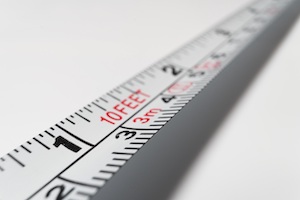
My first development job was at PBS Wisconsin, where I was one person on a team of 16 people. I thought my next job would be in a department of about the same size. But then, I had an opportunity to become Director of Development for Lowell Observatory and became the leader of one and a half staff, including me!
Since then, I've worked in and advised both large and small shops. While I have an affinity for smaller teams, I have also worked with many colleagues who would never leave a larger organization.
When you're looking for a new job, you probably consider the mission, salary, title, position, and responsibilities. But do you consciously think about if the size shop will be a good fit for you? Here are some factors to contemplate as you think about what size shop fits you best.
What kind of stress works better for you?
Regardless of size, every fundraising team deals with stress. In a larger shop, you likely have defined metrics that you are responsible for achieving. In a smaller shop, you probably have budget numbers that you must hit to pay for current expenses. Are you better at dealing with the stress of hitting your key performance indicators or the stress of funding payroll?
How entrepreneurial are you?
Larger shops have invested in systems, procedures, and policies to improve the effectiveness and efficiency of their development program. The effect of this infrastructure is more stability but sometimes less innovation. Or, depending on the organization's leadership, sometimes a larger shop is more innovative because they have a higher capacity for risk. A smaller shop may give you opportunities for improvisation but also may be more chaotic. You may have to be creative and entrepreneurial because you're hustling to make ends meet.
Would you rather be a specialist or a generalist?
A smaller shop typically requires more generalization. Even when you have some degree of specialization in a smaller shop, you often need to pitch in to help in other areas during major campaigns or initiatives. A small shop is great if you're not interested in being boxed into one area and are prepared to do several things that are "other duties as assigned."
A larger size shop gives you far more opportunity to specialize. Do you love doing major gifts? Grants? Direct response? You have greater flexibility to specialize with a larger team.
How much support do you need?
How comfortable are you with doing everything yourself? In a small shop, you need to be prepared to do it all. While this may seem like a negative, some people love the operational nature of a small shop. If you would rather focus on specific fundraising tactics and not operations, a larger shop may better suit you.
How much of a social animal are you?
While you may think there are fewer people to socialize with at a small shop, you may find the opposite to be true. In a smaller shop, you will have a group of employees who regularly interact across several functional areas. In a larger shop, you may end up in a silo where you don't cross paths with your organization's larger community. You may need to be more proactive in reaching out to other departments in a large shop.
How proactive are you in seeking out mentors?
Suppose you are looking for a situation where you will connect naturally with potential mentors. In that case, you will probably be happier in a larger shop with a broader range of skills and experience. However, there is also the risk that you'll only learn about the way you do things at your organization rather than a broader sector perspective.
In a smaller size shop, there are fewer people to serve as natural mentors within your organization. You may be the only person in your department! Your mentors will be people that you intentionally find to give you a wider view of our profession.
One size shop does not fit all. Consider how the size of shop contributes to the organizational culture when you're deciding your next move, and you'll hopefully find a great opportunity for professional growth.
Alice L. Ferris, MBA, CFRE, ACFRE, is the founder of GoalBusters, supporting small fundraising teams with development training, coaching, strategy and implementation. Alice has 30 years of experience in the philanthropic sector, focusing on strategic and development planning, board development, annual giving, nonprofit operations, and small shop support.